Birmingham office market research — Q2 2020
With 5 transactions and 61,474 sq ft, Q2 2020 – the ‘COVID Quarter’ – was the quietest on record, but not the smallest. However, as more businesses return to their premises this month, we look at the Birmingham office market and what lies ahead.
As reported last quarter, in light of lockdown, the Birmingham office market pressed pause. Occupiers have been unable to move in or out of property, and as such, there has been no desire to commence new office leases either.
We suggested that there would be many office space transactions, first intended to complete in Q2, that will now take place much later in the year. With the stats for Q2, we can see that occupiers have most definitely sat on their hands.
Birmingham office market at a glance
- Quietest quarter on record, but not the smallest – DWP deal gives quarter a bump
- Governmental bodies top the board again – latest in string of large public sector deals
- ‘The Great Return’ – many signs show occupiers are heading back to the office
- Landlords should respond to a post-COVID market – measures for increasing retention
- Flexibility is here to stay – coronavirus cements flexibility as a key occupier demand
- Infrastructure, investment and industrial – projects hoped to restart the economy
- A whole new Broad Street – recapping all recent changes to one of the City’s key locations
- Outlook – increase in activity ahead but impact of COVID won’t be truly known for a while
Quietest quarter on record, but not the smallest
The ‘COVID Quarter’ delivered five deals, producing a total of 61,474 sq ft which, interestingly, is not the smallest amount of office take-up we’ve seen in a quarter. Q1 2012 saw 28 transactions totalling just 54,573 sq ft.
| Location | Occupier | Size (sq ft) |
|---|---|---|
| B1 Summer Hill Road | DWP | 48,787 |
| Edward House, Quay Place | Secretary of State (MoJ) | 5,249 |
| 45 Church Street | NMU Insurance | 3,950 |
| Alpha | Bought By Many | 2,900 |
| Cavendish House | MedicsPro | 588 |
The Birmingham office market was able to achieve this total during the COVID Quarter, primarily due to one transaction – the Department for Work and Pensions at B1 on Summer Hill Road in the Jewellery Quarter. This letting is also responsible for a respectable average letting size for the quarter of 12,295 sq ft.
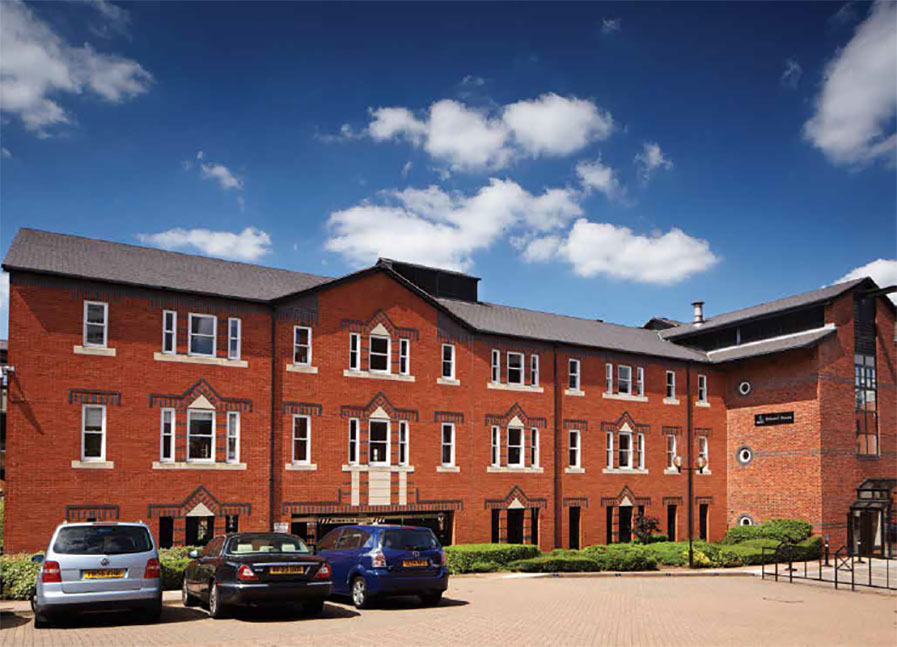
Edward House
Governmental bodies top the board again
Over recent years we’ve come to expect Government, Government-related and public service occupiers being responsible for some of the largest amounts of office take-up.
In Q2, Governmental occupiers account for two of the five transactions that took place, with the letting to DWP being the latest in a series of large deals to public sector occupiers.
In recent times, many of the large-scale relocations from public sector occupiers have represented the consolidation of office space, bringing together a variety of locations and satellite offices to achieve higher operational efficiencies and lower costs.
As such, a move for a Government department, such as DWP, can only be a good thing as it faces new demands over the coming years to help the country through the impact of coronavirus.
Understandably, the Department for Work and Pensions – which is the UK’s largest public service department – has been one of the most vital services throughout lockdown. The DWP has been responsible both for administering the Government’s furlough system – designed to protect 1000s of British jobs, as well as handling the significant increase in demand for Universal Credit.
Prior to the letting, the DWP had two main offices in the City – one at Five Ways House, which houses back-of-house operations and also welcomes visitors for Health and Disabilities Assessments, as well as another back-of-house location at Temple Row House. In addition to this, the DWP also has several Jobcentres in the City. It will be interesting to see how the structure of the DWP’s operations changes with the new space.
‘The Great Return’
Lockdown is easing and many occupiers are now looking to return to the office. The evidence for this is diverse, with the office cleaning industry, for example, now seeing a sharp increase in demand for services – as office space is prepped for welcoming teams back.
The serviced office sector, which had seen all occupiers spend lockdown working from home, is also seeing businesses now start to return. Though this market has taken a hit during lockdown, it is expected to bounce back – read our recent story from KWB Director, John Bryce and serviced office provider, UBC UK’s Managing Director, Richard Johnson for more information.
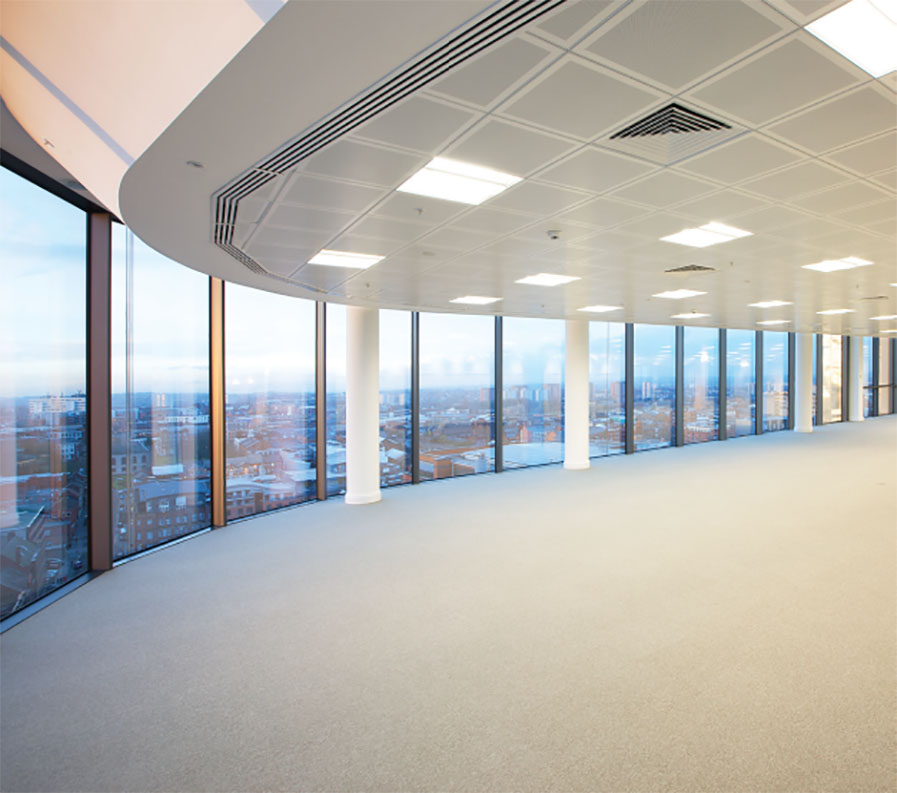
45 Church Street
Landlords should respond to a post-COVID market
Yes, it’s true that the benefits of homeworking are something many have come to appreciate during lockdown. However, remote flexibility is a string being added to the bow – not replacing the bow entirely.
Many businesses are eager to move back into their offices, to re-engage and reinvigorate their teams and get people working together again – in person. After all, there are some forms of teamwork that will always be better and more productive when done face-to-face.
What has changed, however, is their expectations, and this will likely have a knock-on effect on the demands and negotiating positions of occupiers.
Imagine for a moment, an occupier contacts you to say their staff have commented that they have a better internet connection at home than the one in the office…it’s time to consider what your space currently offers occupiers. An upgrade to the connectivity of the space to fibre broadband, for example, could prove vital in occupier retention.
We would recommend considering various investments, in addition to connectivity, including the improvement of other technology in the property, enhancing the visual appearance of the space, and even furniture. We can envisage landlords venturing into providing furniture for the first time – with its own lease.
And then there’s flexibility…
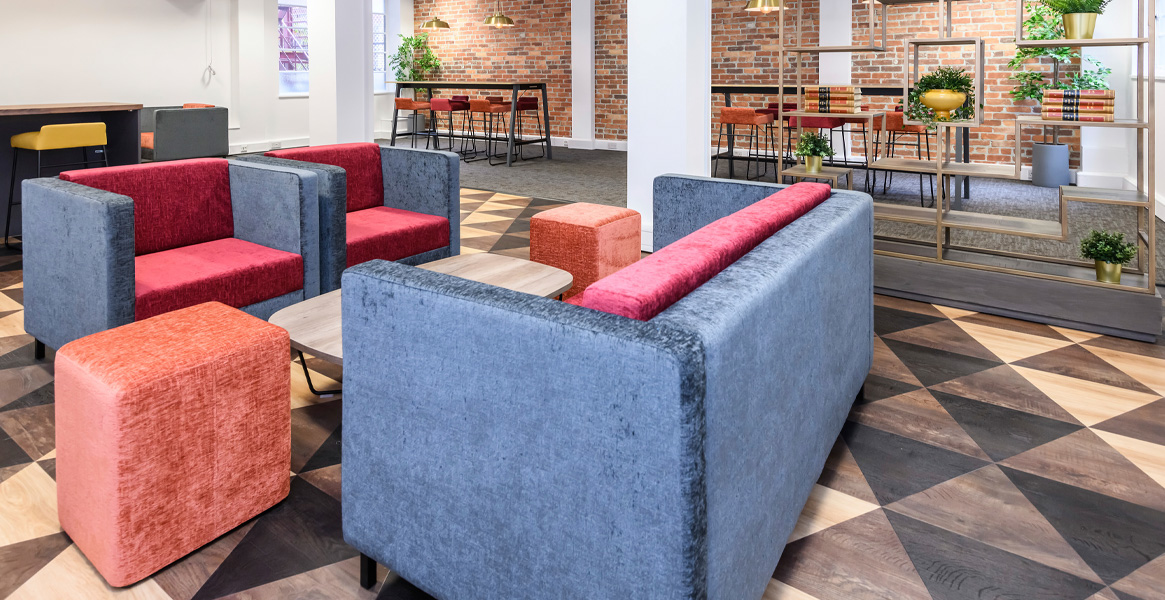
Cavendish House
Flexibility is here to stay
If there was any doubt that flexibility was not the leading trend and occupier demand in the office market, lockdown has made it certain. Occupiers and landlords have had to work together to make it through – compromising where necessary.
Following the EU referendum, we saw a flight to flexibility – punctuated by the fairly dramatic increase in serviced operations in the City. Whilst traditional offices will always ’beat’ serviced offices on value – with serviced offices being around 2-3 times the cost of traditional office space – many landlords have still adapted. Those leasing out traditional office space have needed to find ways of meeting the market demand for flexibility.
Going forward, with occupiers understanding possibly for the first time how agile they may need to be, landlords should consider further adjustments. For office space under 5,000 sq ft, leases could start to look very different – as occupiers become envious of serviced office notice periods.
Where traditional leases, until now, might last 3, 5 or 10 years with a break in between, we may see a move to even annually recurring lease breaks – giving much more freedom to occupiers. If this became the case, landlords would likely seek to create stronger relationships with their occupiers.
Infrastructure, investment and industrial
The Government’s driving vision for recovering from the coronavirus pandemic is investment in infrastructure – to stimulate the economy and generate jobs.
February saw construction of HS2 press ahead and we’re already seeing the results, with bridge links required for the route progressing, as well as the clearing of land.
That being said, it’s not all about HS2. A pivotal roundabout is being built on the A5 at Hinckley to provide access to a new business park currently under development. The 82-acre Hinckley Park scheme will provide up to 532,000 sq ft of warehouses and room for 450,000 sq ft of industrial space. It is expected the development will create 2,400 jobs and 39 acres of the Park will be occupied by DPD, who will locate a super-hub there.
It’s worth noting that, whilst the office market has seen such a severe drop in volume of transactions going through, the industrial market in the West Midlands has generally fared much better during the ‘COVID Quarter’.
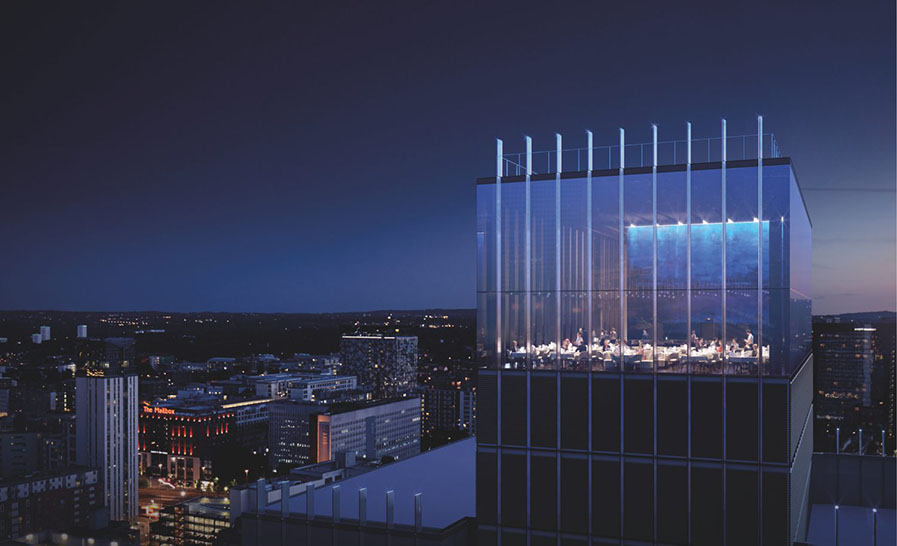
103 Colmore Row reaches for the sky
The former National Westminster House, also known as NatWest Tower, at 103 Colmore Row was demolished ‘piece by piece’ in a process that took about a year and a half, completing in 2017.
Three years later, and the construction of its replacement, named after its address, is well underway and already standing well above its neighbouring buildings. The property is being developed by Sterling Property Ventures and will stand at 26 storeys tall, offering 230,084 sq ft of Grade ‘A’ office space and featuring a 4-storey winter garden.
At the start of the year it was announced that luxury restaurant and bar group, D&D London would take the rooftop restaurant space on a 25-year lease. The restaurant, which will be a distinct landmark on the Birmingham skyline, will be the latest addition to D&D’s portfolio of 43 locations including restaurants, bars and a hotel.
103 Colmore Row is also set to be the first office development in Birmingham signed up to the City’s District Energy Scheme – part of Birmingham City Council’s climate change strategy, to cut CO2 emissions by 60% by 2027.
A whole new Broad Street
Whilst we’ve been in lockdown, the development of Broad Street has continued – with the Metro track now laid all the way up to Five Ways. Yes, there is plenty of work still taking place, but over recent years, the area once referred to as the ‘Golden Mile’ for its pubs, clubs and bars, has been changing for a while.
So how is Broad Street changing? Well, it’s been the location of various transformational projects. At the bottom of Broad Street, the Paradise development has overhauled the old Birmingham Library and the original Paradise Centre. The Chamberlain Square buildings are now up, at different stages of completion, with the first building – which saw the substantial pre-let to PWC in 2017 – showing signs of occupancy, including fitted out restaurants on the ground floor.
As mentioned, the Metro system – intended to bring key areas of Birmingham closer together – is spreading throughout the City, and the stop outside HSBC’s new offices at Arena Central is now in place.
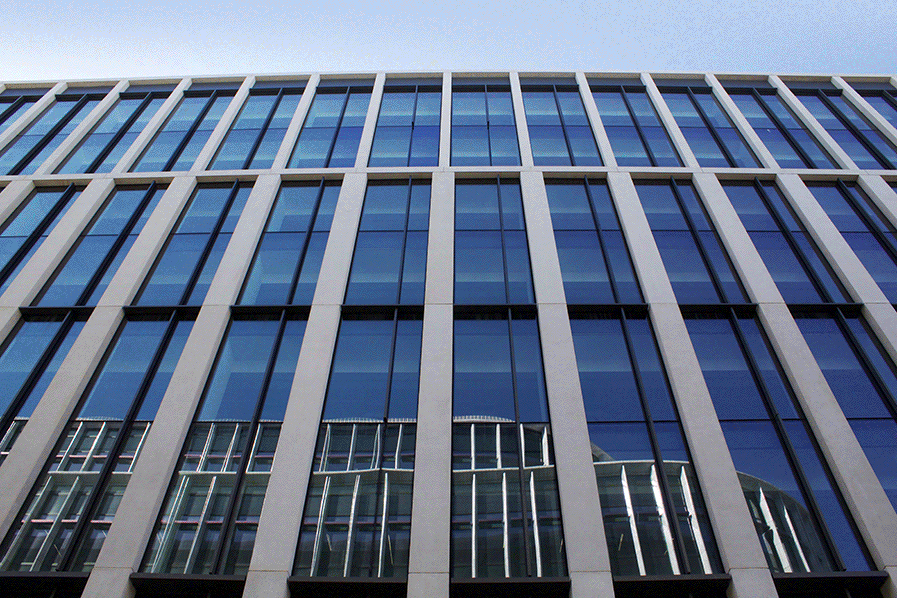
Arena Central itself has had a significant impact on the area, hosting HSBC’s relocation out of London in one of the largest transactions the City has ever seen.
A little further up, we find the Commonwealth Games team now in situ at One Brindleyplace, with its entrance – now branded up with Commonwealth Games 2020 – facing out onto Broad Street.
With all this new office space being built in this part of town, people need somewhere to live, of course. New residential block development, The Bank has provided just that. Tower 1 completed in 2018 and Tower 2, the tallest residential building in the City, completed at the start of this year, with its illuminated upper floors making a significant mark on the Birmingham skyline.
As well as being a leisure destination, when all is said and done on Broad Street, more than ever before, it will be a location for business – with strong profile and a significant volume of high quality office space.
Outlook
One of the most important things to say is that, at this time, we cannot know the long-term effects of coronavirus on the Birmingham office market. To a certain extent, 2020 and the coming years will be what the market makes of them. There are some real opportunities for the market, currently – the infrastructure developments in Broad Street and the progression of HS2, for example.
What is clear to us, is that now is the time for offices to shine – affirming their importance in business. For landlords, enhancing your office space to make it a clear winner over working from home is going to be a fairly persuasive statement to your occupiers when lease breaks come up.
After the ‘COVID Quarter’, we expect Q3 to be a slightly brighter, more active quarter for the Birmingham office market, as many industries come out of what was a three-month hibernation. However, it is possible that we may see continued reluctance from some occupiers – even those that have had deals all but signed off for a while.
See full details of the transactions featured in our Birmingham office market research, comprising office space in Birmingham city centre and Edgbaston.
For more information on the Birmingham office market, please contact Nigel Tripp on 0121 233 2330 or email ntripp@kwboffice.com.
To register for future research updates, click here. See also our M42 and Solihull office market research.

